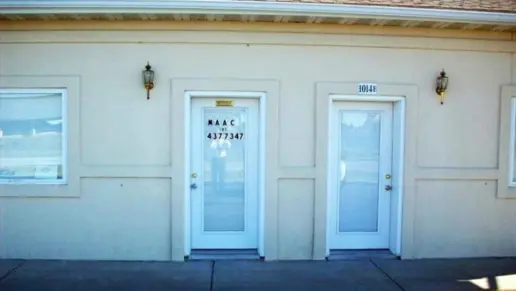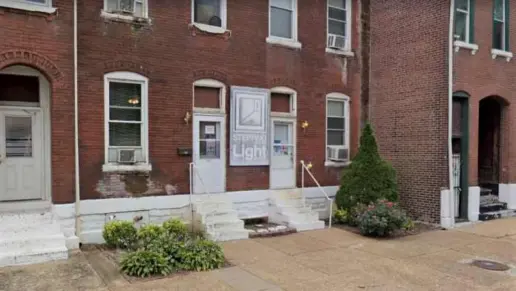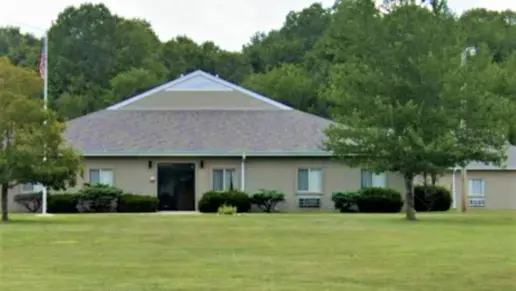About Harris House – Traditional Housing Program
Harris House is a private alcohol and drug addiction recovery center in Saint Louis, Missouri. They provide adult clients with personalized care that focuses on empowering clients to take greater responsibility for themselves and their care. This is a state of the art center with luxury amenities. Harris House provides a full continuum of care to meet the complex needs of a diverse clientele. They offer dual diagnosis care services for clients with addiction and mental illness symptoms.
Medically assisted detox is the safest way for clients to remove illicit substances from their bodies. During detox, they stay at the center, where they are monitored and cared for by the medical team as they work through withdrawal. Medication may be administered to help clients with symptoms. Once they are stable, they can continue to the next level of care.
The inpatient program is a high level of care where clients reside at the facility for the length of their treatment program. To ensure the environment remains safe and supportive, staff monitor clients 24 hours daily. Clients generally do not leave the campus during treatment with staff supervision.
Therapy and education are the core of treatment at Harris House. Clients work with a personal care team to develop an individualized treatment plan focused on therapy and education groups. Clients learn more about addiction, discover their triggers, recognize and control their emotions, communicate, and develop critical hope and life skills supporting ongoing recovery and independent living.
PHP is the next level of care following the inpatient program and is sometimes used as a transitional step following a residential program. It’s an intensive day program where clients visit the facility six hours a day, five days a week, to participate in therapy and education groups. PHP also offers family therapy and education services.
Much like PHP, IOP sees clients live at home and visit the facility on a regular schedule to receive treatment. IOP meets less frequently for three hour sessions but participates in the same types of therapy and education groups.
Clients with both substance use disorder (SUD) and a mental illness such as depression, bipolar, or schizophrenia are at a higher risk of relapse. Dual diagnosis care reduces this risk by treating the symptoms of both issues during treatment. An assessment may determine if a client has a co-occurring condition, even if they haven’t been previously diagnosed.
Clients who have completed treatment can receive continuing care through gender specific subsidized transitional housing. Clients continue participating in peer support, therapy, and education groups in these community living settings. Over time they take on more responsibility to prepare for their return to independent living, such as preparing their own meals and securing employment.
Gallery
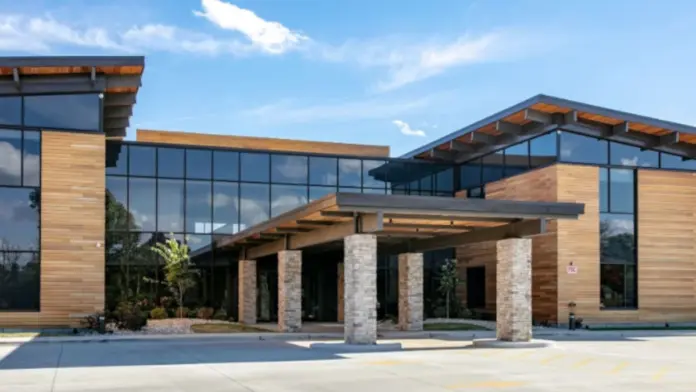
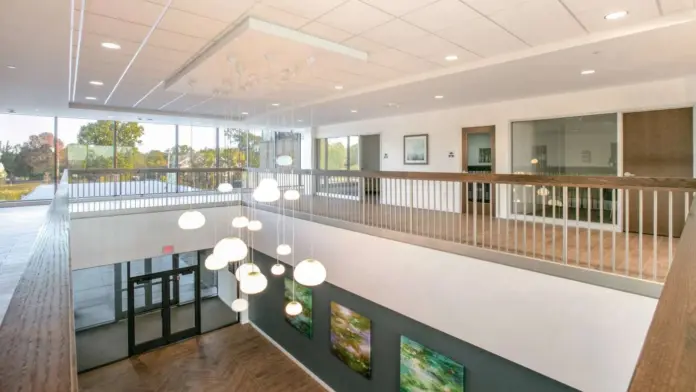
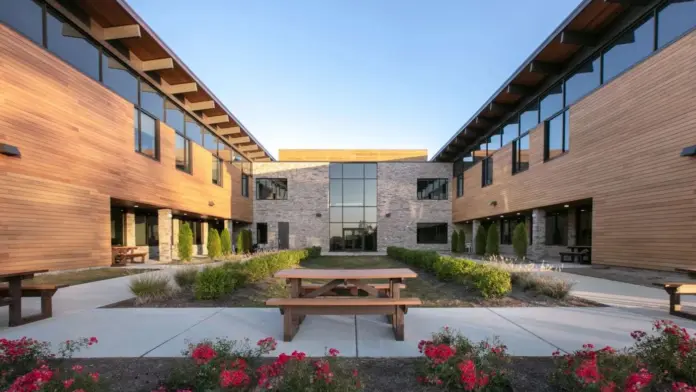
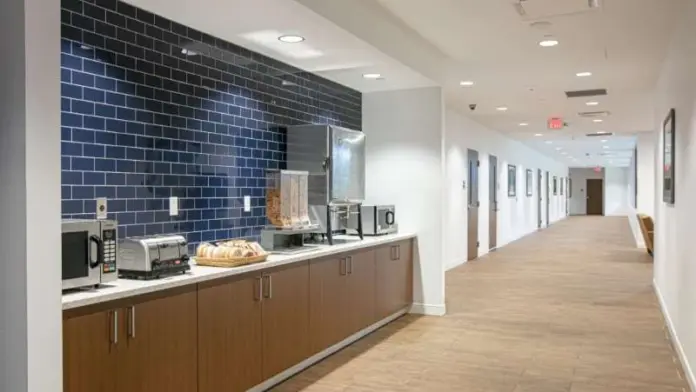
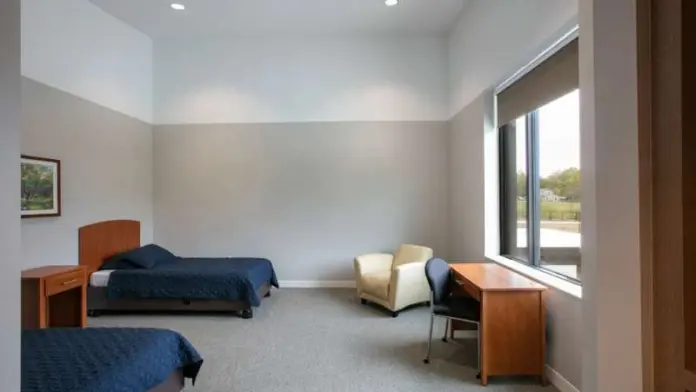
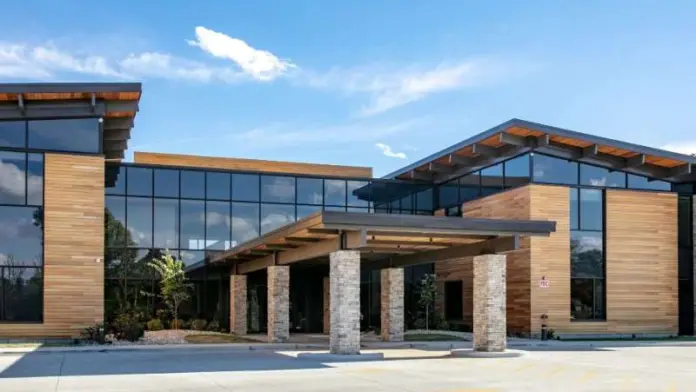
Location
Accepted Insurance


Other Forms of Payment
Self-pay involves paying for treatment out of your own pocket. You can use savings or credit, get a personal loan, or receive help from family and friends to fund your treatment. If you don't have insurance or your insurance plan doesn't cover a specific program, self-pay can help ensure you still get the care you need.
Private insurance refers to any kind of healthcare coverage that isn't from the state or federal government. This includes individual and family plans offered by an employer or purchased from the Insurance Marketplace. Every plan will have different requirements and out of pocket costs so be sure to get the full details before you start treatment.
Addiction Treatments
Levels of Care
Treatments
The goal of treatment for alcoholism is abstinence. Those with poor social support, poor motivation, or psychiatric disorders tend to relapse within a few years of treatment. For these people, success is measured by longer periods of abstinence, reduced use of alcohol, better health, and improved social functioning. Recovery and Maintenance are usually based on 12 step programs and AA meetings.
Drug rehab in Missouri usually involves several phases: detox, rehab, and aftercare. The rehab phase may include a combination of inpatient and outpatient treatments, as the individual moves through a continuum of care on their recovery journey.
Substance rehabs focus on helping individuals recover from substance abuse, including alcohol and drug addiction (both illegal and prescription drugs). They often include the opportunity to engage in both individual as well as group therapy.
Programs


Clinical Services
Cognitive Behavioral Therapy (CBT) is a therapy modality that focuses on the relationship between one's thoughts, feelings, and behaviors. It is used to establish and allow for healthy responses to thoughts and feelings (instead of unhealthy responses, like using drugs or alcohol). CBT has been proven effective for recovering addicts of all kinds, and is used to strengthen a patient's own self-awareness and ability to self-regulate. CBT allows individuals to monitor their own emotional state, become more adept at communicating with others, and manage stress without needing to engage in substance abuse.
Group therapy is any therapeutic work that happens in a group (not one-on-one). There are a number of different group therapy modalities, including support groups, experiential therapy, psycho-education, and more. Group therapy involves treatment as well as processing interaction between group members.
In individual therapy, a patient meets one-on-one with a trained psychologist or counselor. Therapy is a pivotal part of effective substance abuse treatment, as it often covers root causes of addiction, including challenges faced by the patient in their social, family, and work/school life.
Amenities
-
Private Setting
Accreditations

The Commission on Accreditation of Rehabilitation Facilities (CARF) is a non-profit organization that specifically accredits rehab organizations. Founded in 1966, CARF's, mission is to help service providers like rehab facilities maintain high standards of care.
CARF Accreditation: Yes
Contact Information
8315 S Broadway
St. Louis, MO 63111








